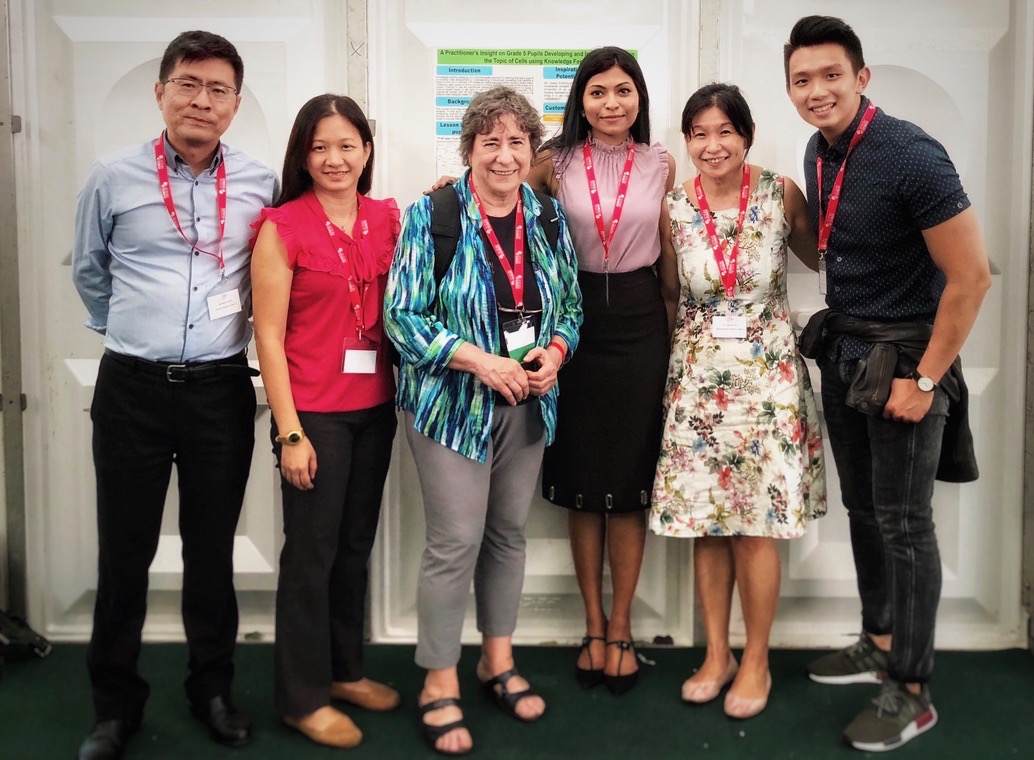Making the Learning Sciences Count!
ICLS 2018
The International Conference of Learning Sciences 2018 | London, U.K.
The Learning Sciences represent a bridge for researchers and practitioners to come together to deconstruct the complexities of what happens in classrooms. For practitioners, research data serves as a mirror to reflect and improve our craft; for researchers, classrooms a living lab to examine dynamic ideas.
As such, no matter which side of the bridge we arrive from, we forge toward same frontiers: Making the Learning Sciences Count in our efforts to nurture the next generation.
That was the virtuous theme for the International Conference of Learning Sciences (ICLS) 2018 in London, U.K. which was attended by our Knowledge Building (KB) Science Team from St. Hilda's Primary School, Singapore.
Hear their thoughts and ideas here!
What is Science?
Do our students understand what Science is? Why do we learn Science? What is our role when we learn Science?
One thing I learnt from the ICLS sessions is that Science instruction needs to be informed by the epistemology of science: What are our students' beliefs about Science?
To attain deeper learning of Science beyond experiments and lab lessons, we should develop students' understanding of the nature of Science and to be critical of our inquiry processes as well.
We can promote these by helping students work as little scientists, engaging in reflection about Science and scientific inquiry as they embark on collective Knowledge Building.
Mr Tan Boon Tee, Science Teacher
What's possible?
What can KB Teachers in Singapore learn from our counterparts overseas? What are the possibilities in KB we have yet to see?
My richest learning was from breakfast with KB Teachers from other countries. Hearing how their students decide what they want to learn about a topic over a month or two makes me wonder if our current system promotes the joy of learning or not.
Bound by instructional objectives and guided by set curriculum designed with examinations in mind, we cannot deviate much from what we need to cover; what students must learn.
If there is white space given to students to steer their own learning with support from stakeholders, intrinsic motivation and deeper learning can be fostered in them. This will be probably more enjoyable for us teachers too.
Mrs Jamay Loh, Science Teacher
What did we contribute?
What can we contribute to the Learning Sciences community? What did we learn when preparing for an international conference?
At ICLS 2018, we wanted to share Science lesson designs that were driven by student ideas archived on Knowledge Forum, an enhancement from traditional curriculum-driven lessons. We were delighted to know that attendees were keen to find out what worked and how we leveraged on student ideas to craft engaging lessons.
The process of writing the conference paper enabled us to crystallise key drivers of the innovative student idea-centric lesson design, making us reflective practitioners who build on successes and learn from areas for growth.
Mrs Usha Ram, Science Teacher
Of course, all work and no play makes Knowledge Builders dull, innit?
Check out the other highlights of our London trip here!













